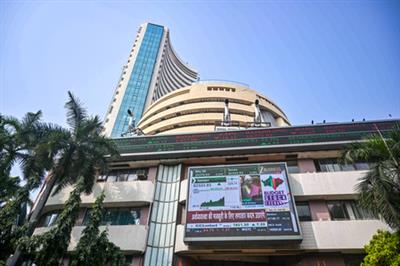
Sensex, Nifty trade nearly flat; IT index down 0.5 pc
The Indian equity markets opened the week almost flat with a mild negative bias on Monday, due to a weaker-than-expected earnings season and AI-led pressure on technology stocks.
As of 9.25 am, Sensex lost 22 points, or 0.02 per cent, to reach 83,604, and Nifty lost 6 points, or 0.03 per cent, at 25,464.
Main broad-cap indices posted stronger losses than benchmark indices, as the Nifty Midcap 100 declined 0.34 per cent, and the Nifty Smallcap 100 dipped 0.47 per cent.